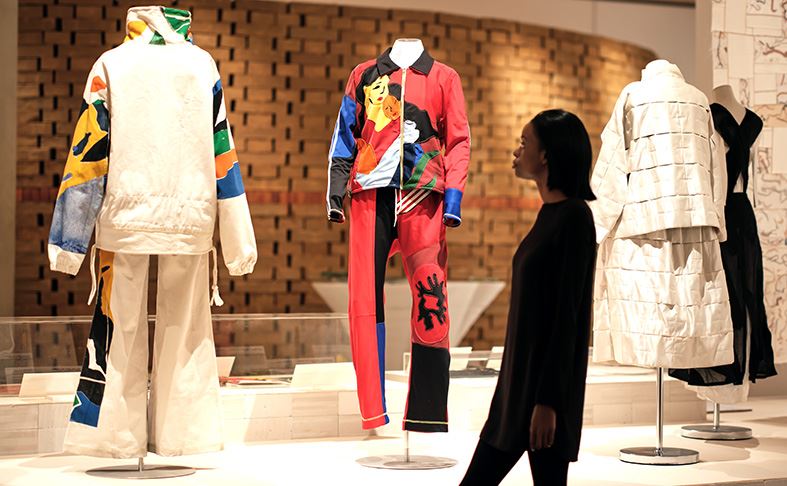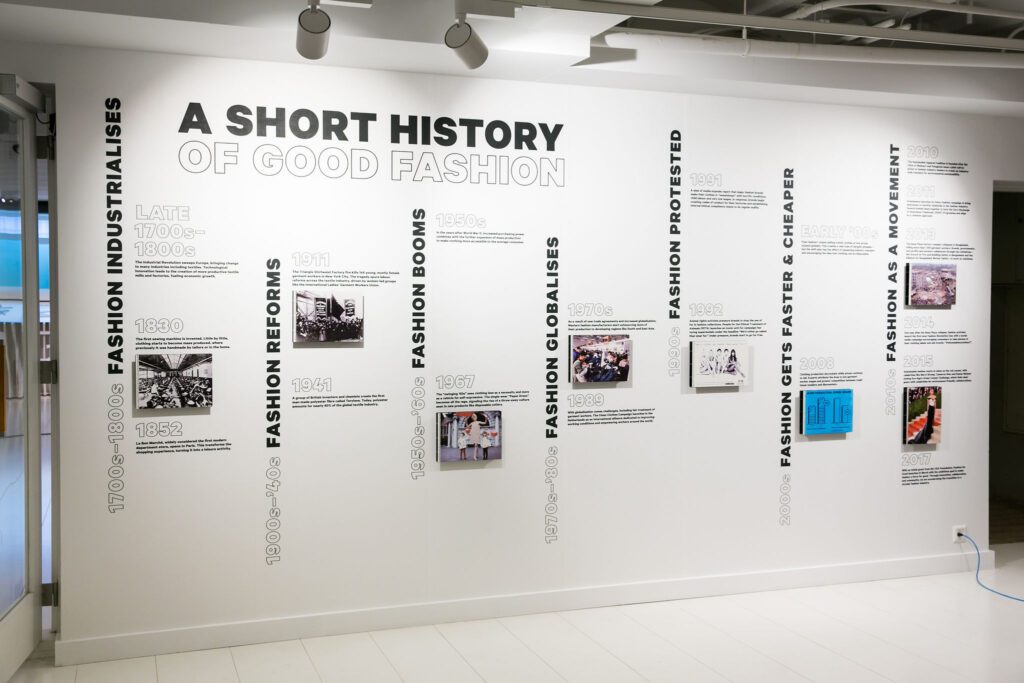Art and Climate Change
The effects of climate change on our planet and daily lives can be complicated to understand. Many artists across the EU have incorporated themes of climate change and sustainability to not only help people understand our changing environment but to also highlight the need to be more environmentally conscious to protect the planet.
The Creative Europe Program is funded by the EU and seeks to:
- safeguard, develop, and promote European cultural and linguistic diversity and heritage
- increase the competitiveness and economic potential of the cultural and creative sectors, in particular, the audiovisual sector
The program supports art projects promoting a circular economy to the public as a way to raise awareness to make more sustainable choices in our everyday lives. The principles of sustainability can often be effectively conveyed through the arts, surpassing the impact of countless political speeches. With their creative imagination, designers can pave the way for new ideas and innovative solutions that bring the circular economy closer to reality.
Museums and Exhibitions
Network of European Museum Organizations - The Network of European Museum Organizations (NEMO) advocates for Europe's museum sector to address the climate crisis. The report "Museums in the Climate Crisis: What Can We Do?" explores the role of museums in addressing the climate crisis, highlighting the importance of taking action to reduce the carbon footprint of cultural institutions and promoting sustainability and resilience in their operations
Mobile Climate Museum - The Climate Museum in Lithuania Climate Museum in Lithuania provides a virtual space that aims to raise awareness and educate people about climate change and its impact on the environment and society. Through various interactive exhibits, visitors can learn about the causes and consequences of climate change, as well as explore possible solutions to mitigate and adapt to its effects.
Design Museum - "Waste Age: What can Design Do?" is an exhibit by the Design Museum in London. The exhibition explores the critical role of
 Fashion For Good Museum - The Fashion for Good Experience museum is located in Amsterdam, Netherlands. The museum provides a highly interactive and immersive experience that explores the impact of the fashion industry on the environment and society and showcases innovative solutions that promote sustainability and circularity. Visitors can explore a range of exhibits that demonstrate the latest developments in sustainable fashion, including materials innovation, new business models, and consumer engagement strategies.
Fashion For Good Museum - The Fashion for Good Experience museum is located in Amsterdam, Netherlands. The museum provides a highly interactive and immersive experience that explores the impact of the fashion industry on the environment and society and showcases innovative solutions that promote sustainability and circularity. Visitors can explore a range of exhibits that demonstrate the latest developments in sustainable fashion, including materials innovation, new business models, and consumer engagement strategies.
Art Organizations
 Mediamatic - Mediamatic, is an Amsterdam-based cultural institution that focuses on art, culture, and sustainability. Their mission is to explore the intersection between nature, technology, and society, and to promote sustainable living practices through creative and innovative projects. Mediamatic aims to inspire people to rethink their relationship with nature and to take action towards a more sustainable future.
Mediamatic - Mediamatic, is an Amsterdam-based cultural institution that focuses on art, culture, and sustainability. Their mission is to explore the intersection between nature, technology, and society, and to promote sustainable living practices through creative and innovative projects. Mediamatic aims to inspire people to rethink their relationship with nature and to take action towards a more sustainable future.
Satellietgroep - Satellietgroep, a Dutch art and design collective that focuses on the relationship between humans and the sea. The page is specifically about their project "Now Wakes The Sea," which is a series of artistic and cultural initiatives that explore the impact of climate change on coastal areas and communities.
Green Art Lab Alliance - The Green Art Lab Allaince (GALA) is GALA is a network of European cultural organizations that aim to promote sustainable practices and stimulate public debate on environmental issues through art and culture
Art Climate Transition (ACT): Art Climate Transition is an org-anization that aims to showcase and promote the role of art in addressing climate change and sustainability. They feature a range of creative projects and initiatives from artists, researchers, and activists across Europe, including exhibitions, workshops, and performances. Through its platform, Art Climate Transition seeks to raise awareness of the urgent need for collective action on climate change, and to inspire and empower individuals to take meaningful steps towards a more sustainable future
Libraries
Green libraries are an emerging trend in Europe, with many libraries recognizing the importance of sustainability and taking steps to reduce their environmental impact. One approach is to design and construct new library buildings with green features such as energy-efficient lighting, renewable energy systems, and water-saving measures. For example, the new Municipal Library in Stuttgart, Germany, is designed to be a "green oasis" in the city, with a green roof and energy-efficient systems.
Another approach is for libraries to adopt sustainable practices in their operations, such as reducing paper waste, recycling materials, and using environmentally friendly cleaning products. In the Netherlands, the National Library of the Netherlands has implemented a range of sustainability measures, including the use of LED lighting and the installation of solar panels.
Some libraries are also promoting sustainability through their collections and programming, such as by offering resources on environmental topics or hosting events on sustainability issues. For instance, the Helsinki City Library in Finland has a collection of books and materials related to sustainability and climate change, and hosts events such as workshops on reducing food waste.
Overall, green libraries in Europe are contributing to the larger effort towards sustainability by reducing their own carbon footprint, promoting sustainable practices, and raising awareness of environmental issues
ELSIA - Expert Group European Libraries and Sustainable Development Implementation and Assessment
Implementing Sustainable Development Goals in European Libraries